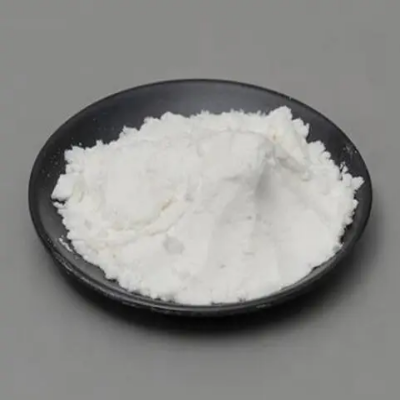4-Amino-3-nitrobenzotrifluoride CAS:400-98-6
Growth promotion: L-Arginine is known to stimulate growth hormone release in animals, which can contribute to improved growth and development. It promotes protein synthesis, which is essential for muscle growth, and can enhance overall body weight gain in anim
4-Amino-3-nitrobenzotrifluoride plays a crucial role as an intermediate in organic synthesis, particularly in the pharmaceutical industry. Its structure makes it a valuable building block for synthesizing biologically active compounds, including potential drug candidates. The amino and nitro functionalities allow for further chemical modifications, leading to derivatives with enhanced therapeutic effects. In addition to its applications in pharmaceuticals, this compound is utilized in the manufacture of agrochemicals, such as herbicides and pesticides. The trifluoromethyl groups contribute to improved lipophilicity and biological activity, making formulations more effective in targeting specific pests or weeds. Moreover, 4-amino-3-nitrobenzotrifluoride is also explored for use in materials science, particularly in the development of advanced polymers and coatings. Its chemical properties can enhance the performance characteristics of materials, such as thermal stability and resistance to environmental degradation. Overall, the diverse applications of 4-amino-3-nitrobenzotrifluoride highlight its significance in various industries, driving innovations in pharmaceuticals, agrochemicals, and materials technology. As research progresses, new uses and formulations may continue to emerge, broadening its applicability.
als.
Nitric oxide production: L-Arginine is a precursor for nitric oxide (NO) synthesis in the body. Nitric oxide is involved in various physiological processes, including blood vessel dilation, immune function, and cell signaling. Supplementing L-Arginine in animal diets can enhance NO production, leading to improved blood flow, immune response, and nutrient absorption.
Immune function: L-Arginine plays a crucial role in supporting the immune system. It is involved in the production of immune cells, such as T-cells and macrophages, as well as antibodies. By providing an adequate supply of L-Arginine in animal diets, immune function can be optimized, leading to improved disease resistance and overall health.
Reproductive performance: L-Arginine is essential for reproductive processes in animals. It is involved in sperm production and motility in males and can enhance fertility. In females, L-Arginine supports the development and function of the uterus and placenta, enhancing reproductive performance and increasing litter size.
Stress management: L-Arginine has been shown to have a positive impact on animals' stress response. It can reduce stress-induced cortisol levels and promote a state of relaxation. By supplementing L-Arginine in animal diets, stress tolerance and overall well-being can be improved.



| Composition | C7H5F3N2O2 |
| Assay | 99% |
| Appearance | white powder |
| CAS No. | 400-98-6 |
| Packing | Small and bulk |
| Shelf Life | 2 years |
| Storage | Store in cool and dry area |
| Certification | ISO. |









